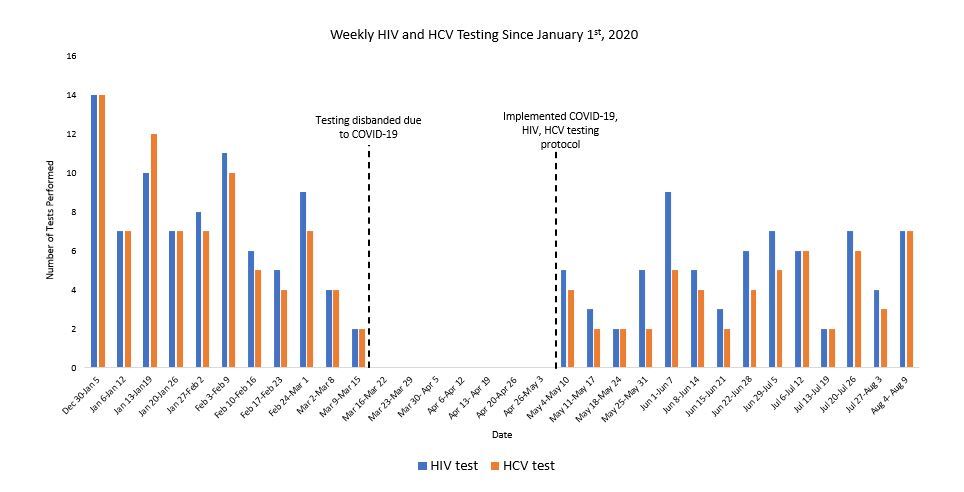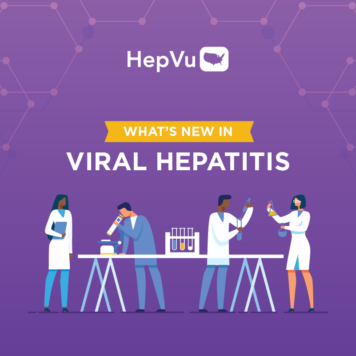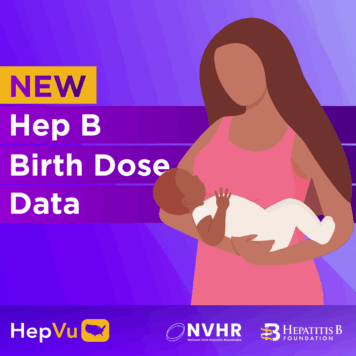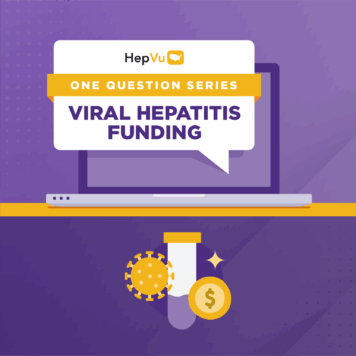Tyler Bartholomew serves as the Director of Research and Evaluation at IDEA Exchange and is a PhD candidate at the University of Miami.
Q: You recently spoke on a HepVu webinar about the IDEA Exchange and how the COVID-19 pandemic has impacted syringe service programs. Can you give us a brief overview?
The COVID-19 pandemic has had a profound impact on our national public health infrastructure, leading to the disruption of many key services, including syringe services programs (SSPs). SSPs are community-based service programs that provide a range of services, including needle exchanges, which can prevent the spread of viruses among injection drug users. For decades, many states have passed legislation marking SSPs as a legal public health intervention, but it wasn’t until 2016 that Florida lawmakers gave Miami-Dade County permission to pilot a needle exchange program.
Operating within the University of Miami, the IDEA Exchange is the first and only legal syringe exchange in the state of Florida. In the four years it has been a part of the community, the IDEA Exchange has served over 1,400 individuals, exchanged 520,000 syringes, distributed 3,300 boxes of nasal naloxone, and administered nearly 2,500 HIV and Hepatitis C tests.
The IDEA Exchange has become a model for change statewide. In 2019, Florida lawmakers passed legislation allowing counties across the state to establish similar needle exchange programs to prevent opioid overdose deaths and reduce the spread of Hepatitis C and HIV.
However, the COVID-19 pandemic has challenged the IDEA Exchange and SSPs across the country to transform their operating procedures and outreach strategies to better serve persons who inject drugs.
Q: How are people with substance use disorder (SUD) uniquely impacted by the COVID-19 pandemic?
People with substance use disorder, especially people who inject drugs (PWID), are more likely to suffer from poor pulmonary health from smoking practices, HIV, and TB infections, as well as compromised immune systems. These health conditions put them at higher risk of suffering complications if they do contract COVID-19. Additionally, people with SUD are more likely to experience economic, social, and environmental challenges (e.g. homelessness, poverty, unemployment, food insecurity, and incarceration) which makes them more susceptible to community spread.
As states continue to implement social distancing mandates, many people are experiencing increased levels of stress and anxiety, which may exacerbate substance use during this crisis. All these challenges and risk factors are likely to be worsened at a time when SSPs and other SUD prevention, treatment, and harm reduction services are critically disrupted.
Q: You recently co-authored a study surveying SSPs throughout the U.S. about their operational changes in the wake of COVID-19. What were the findings?
In total, our survey collected data from 65 SSP sites from 33 states and found:
- Of the 65 SSP sites, the majority of programs (84.6%) have remained open; however, 10 programs (15.4%) have discontinued all services and 16 (24.6%) have switched to mobile delivery of new injection equipment;
- All open sites have implemented COVID-19 prevention measures to protect SSP staff and participants;
- 72.3% of the programs that have remained open are operating under restricted hours of operation; and
- Only 17 programs (26.1%) have continued providing HIV/Hepatitis C testing onsite, with the majority discontinuing their medical services.
Our findings emphasize the disruption of services provided through SSPs across the U.S. Additionally, we need to recognize that SSPs often serve as primary care sites for the persons who use these services. As noted, a majority of the surveyed SSPs stopped providing testing for HIV and Hepatitis C. These findings highlight the need for innovative strategies to continue providing HIV and Hepatitis C testing during COVID-19.
Q: How has the IDEA Exchange changed its operational procedures to continue offering services during the COVID-19 pandemic?
When social distancing measures began, the IDEA Exchange modified its main facilities but continued operating and providing services with increased protective measures for the community and our staff. At the beginning of the pandemic, we discontinued our HIV and Hepatitis C testing but quickly established a COVID-19 testing protocol to continue offering these services. With guidance from the University of Miami, we began concurrently offering COVID-19 testing, rapid HIV testing, and Hepatitis C antibody tests. Today, we have provided 70 tests since the start of the pandemic. As you can see in the chart below, since we implemented the new protocol in early May, we have seen our testing numbers slowly rise towards the pre-pandemic levels.

Before the COVID-19 pandemic even began, the IDEA Exchange began implementing a Tele-Harm Reduction model, primarily for HIV care and
Medication for Opioid Use Disorder (MOUD). For example, if a patient tests positive for HIV at the SSP we can actually connect them with a Ryan White case manager to complete all the necessary forms over HIPPA compliant Zoom. To increase linkage to HIV care services for PWID, we are now able to access an HIV provider via telehealth so the patient can be evaluated, have on-site phlebotomy, and same-day initiation of antiretroviral therapy (ART) medication. Additionally, we have a medication management protocol for patients living with HIV who are experiencing homelessness to store their medication onsite using pill lockers supported by our Community Engagement Team. Under the Tele-Harm Reduction model, our clients are able to access these services at the fixed site, on our mobile unit, or even under a bridge through telehealth.
Since implementing Tele-Harm Reduction in January 2020, 29 PWID have been enrolled in Ryan White and met with an HIV provider; 21 of those 29 successfully initiated ART and are virally suppressed. Although COVID-19 has been a huge challenge, IDEA Exchange and other SSPs have continued to do life-saving work in their communities and remain an essential resource for PWID.




